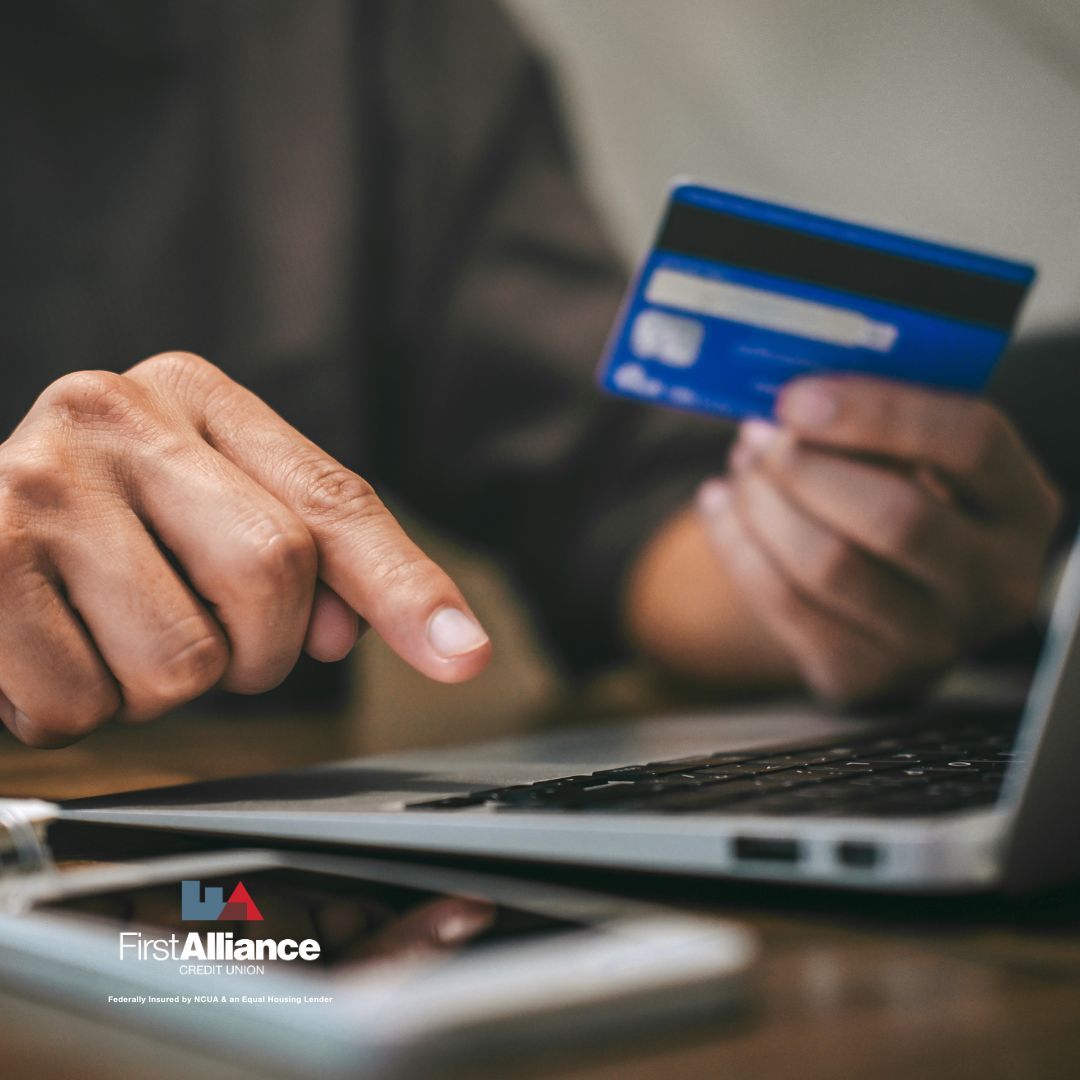How to Write a Business Plan: What It Is and Why You Need One
Donna never pictured herself drafting formal documents. She was the friendly face at the Rochester gym who lost 70 pounds and filled Instagram with...
6 min read
 Kamel LoveJoy
:
Aug 21, 2025 5:00:00 AM
Kamel LoveJoy
:
Aug 21, 2025 5:00:00 AM

Identity theft is scary, but your choices do not have to be. Two of the strongest tools you can use are a credit freeze and a credit lock. These tools stop strangers from opening new credit in your name by blocking lenders from seeing your credit report without your say so. The names sound almost the same, yet they work a little differently and are managed in different ways.
Let’s make it easy. We will break down what a freeze is, what a lock is, how they compare, and when to choose one over the other. We will also walk through fast steps to turn protection on and how First Alliance Credit Union can help you stay on top of your money while you do it.
Maya got a text that said, “Your store card is approved.” She had not applied for anything. Instead of panicking, Maya wrote down the store name and time, then froze her credit at Equifax, Experian, and TransUnion. That move blocked new accounts from being opened in her name. The next day she learned about credit locks and asked a smart question. If a freeze is free and strong, when would a lock help? Keep reading to see the simple choice that fits your life.

A credit freeze stops new lenders from pulling your credit report. If a lender cannot see your report, they cannot open a new line of credit in your name. A freeze is set by law, which means the rules are clear and the protection is strong. It is free to add and free to lift at Equifax, Experian, and TransUnion. You can lift a freeze for a short time when you need to apply for a loan or a credit card, then put it back on afterward.
Here is the big idea. A freeze does not affect your current accounts, your credit score, or your day-to-day banking. You can still use your debit card, pay your bills, and transfer money. If you have kids or a parent who needs help, you can also freeze a child’s credit or help a loved one set up their own freeze.
Before we move to the next section, remember that a freeze must be placed at each credit bureau to be complete. Each bureau will give you a confirmation and a way to lift the freeze later. Keep those details in a safe place at home. When you apply for new credit, you can lift the freeze for a few days or allow a specific lender to check your file.
A credit freeze blocks new credit checks for most lenders until you lift it.
It costs nothing to add or remove.
You must set it with Equifax, Experian, and TransUnion separately.
A credit lock is a similar block, but it is a product from a credit bureau rather than a legal protection. You turn it on and off through an app or online account with that bureau. Some locks are part of paid plans that include alerts and other features. A lock is convenient because you can flip it on your phone, yet it follows the terms of the service agreement from that company.
Just like a freeze, a lock does not change your credit score and does not stop you from using your current accounts. It only aims to stop new lenders from checking your report when you did not ask them to. Since it is a product, each bureau sets its own features for a lock. That can be helpful if you want app control, yet it also means you should read the details closely.
If you choose to use locks, remember that lenders do not all check the same bureau. One lender might check TransUnion, while another might check Experian or Equifax. This means you may need to lock all three for full coverage, just like a freeze. Think about how you prefer to manage things. If you like a simple set-and-forget plan, a freeze is often the better default.
A credit lock is managed through a bureau’s app or website.
Some locks are part of paid packages, while others may be free.
You may need to lock all three bureaus for full coverage.
%20.jpg?width=1200&height=630&name=Credit%20Lock%20vs.%20Freeze%20-%20Freeze%20or%20Lock%20(1)%20.jpg)
The names are close, and both can protect you. Still, there are a few differences that matter when you decide what to use. Read this part slowly and choose the path that fits your life today. If you want one less thing to think about, a freeze is usually the safest starting point. If you love app control and already have a bureau’s service, a lock can be a useful extra.
Before we list the differences, know that both options can be turned off temporarily when you are applying for a loan, credit card, or apartment. You should also know that neither one will fix fraud that already happened. They are shields for the next attack, not a clean-up tool for past damage. For that, you will want to file reports and follow recovery steps.
Legal status: A freeze is defined by federal law and comes with clear rights. A lock is a service with a user agreement.
Cost: A freeze is free at all three bureaus. A lock may be free or part of a paid plan, depending on the bureau.
How you manage it: A freeze uses a PIN or password to lift. A lock is often managed with an app toggle.
Best for: A freeze is best for most people who want strong, simple protection. A lock is best if you want quick app control and you already use that bureau’s tools.
Choose a freeze if you saw a strange application, a data breach notice included your name, or you simply want long term protection without extra cost. A freeze is also a smart move for teens and young adults who are just starting to build credit. It keeps their clean record safe until they are ready to apply for real accounts. You can keep a freeze on for years and only lift it when you need to.
A lock can be handy if you like the ease of a phone switch and you are already paying for a bureau’s monitoring plan. Some people use a freeze as the main layer and add a lock at the bureau they check most often. That way they get the legal strength of a freeze with the convenience of a quick toggle when they are shopping for a car or a phone plan. Just be sure you understand the terms and that all three bureaus are covered in some way.
Turning on a freeze is simple, and you can do it online or by phone with each bureau. Set aside 20 to 30 minutes to complete all three. Have your Social Security number, a copy of your ID, and a recent bill with your name and address nearby. You will create logins and security answers, then you will get confirmation numbers. Write them down and keep them in a safe place.
Once your freeze is on, you can apply for new credit by lifting it for a short window. Think about the dates you will shop or meet with a lender, then set the window to cover those days. After you finish, put the freeze back on. If you are working with First Alliance Credit Union on a loan, ask which bureau we will use so you can lift only what you need.
Go to Equifax, Experian, and TransUnion to create accounts and request a freeze.
Verify your identity and store your confirmation details safely at home.
When you need to apply for credit, lift the freeze for a set time or for a specific lender, then re-enable it.
Press play for Cesar’s quick tips to keep your identity safe.
Act fast and stay calm. Start by placing or confirming your freeze at all three bureaus. Next, check your bank and card activity and report any transactions you do not recognize. Keep notes on who you talked to and what you were told. If a thief opened an account, ask the company to close it and send written confirmation. File a report and follow the recommended recovery plan.
If you are a First Alliance member, set up account alerts in digital banking so you see unusual activity right away. You can also review your transactions often and contact us if anything looks off. Staying aware is one of the best habits you can build. You do not need to check every five minutes. A quick daily glance or a weekly review is enough for most people.
Confirm your freeze is active with all three bureaus.
Monitor your accounts in our mobile or online banking and report anything odd.
Document calls and messages, close any fake accounts, and follow recovery steps from official sources.

You are not alone in this. While a freeze or lock lives with the credit bureaus, your day-to-day money flows through your checking and savings. Use our My Cards app to watch your balances, set up alerts, and transfer money safely. Our team talks with people every day who are taking their first steps with credit. We can explain how a freeze works alongside applying for a First Alliance loan, and we will walk you through the timing so it is smooth. Simple tools, clear steps, and a calm plan can save you hours of worry and protect your future self.
Does a credit freeze or lock hurt my credit score?
No. Neither one affects your score. They only limit new lenders from pulling your report.
Can thieves still use my current cards if I freeze or lock my credit?
A freeze or lock does not stop charges on accounts you already have. Keep an eye on your statements and set alerts so you catch anything you did not make.
How long does it take to lift a freeze?
Most lifts happen quickly once you sign in and request it. Give yourself a little time before a big application, then put it back on once you are done.
Is one bureau enough?
No. Lenders use different bureaus. Cover all three for the best protection.
If you want strong, simple, and free protection, start with a credit freeze at Equifax, Experian, and TransUnion. It is the best fit for most people and it works quietly in the background. If you like the idea of app control and you already use a bureau’s service, add a credit lock for convenience. Either way, choose a plan today, write down your details, and keep going with your goals. Protecting your identity is part of protecting your future. First Alliance Credit Union is here to help you keep your money safe, understand your choices, and feel confident when you apply for credit.

Donna never pictured herself drafting formal documents. She was the friendly face at the Rochester gym who lost 70 pounds and filled Instagram with...

Starting a business takes grit, heart, and a plan. Lenders want to see that plan in action. When you understand small business loan requirements, you...

We all know that life happens. Divorce, health issues, emergencies, one or a combination of any life event can adversely impact your credit score....